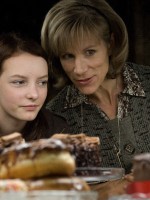The March est un film américain de genre Documentaire réalisé par James Blue avec Juliet Stevenson
The March (1964)

Si vous aimez ce film, faites-le savoir !
Durée 33minutes
Réalisé par James Blue
OrigineEtats-Unis
Genres Documentaire
Themes Le racisme, Documentaire sur la discrimination, Documentaire sur le droit, Documentaire historique, Documentaire sur une personnalité, Documentaire sur la politique, Politique
Note66%










The March, also known as The March to Washington, is a 1964 documentary film by James Blue about the 1963 civil rights March on Washington. It was made for the Motion Picture Service unit of the United States Information Agency for use outside the United States – the 1948 Smith-Mundt Act prevented USIA films from being shown domestically without a special act of Congress. In 1990 Congress authorized these films to be shown in the U.S. twelve years after their initial release.
In 2008, the film was selected for preservation in the United States National Film Registry by the Library of Congress as being "culturally, historically, or aesthetically significant".
Synopsis
The March, également connue sous le nom de The March to Washington, est un film documentaire de 1964 de James Blue sur la marche des droits civiques de 1963 à Washington. Il a été réalisé pour l'unité Motion Picture Service de l'Agence d'information des États-Unis pour une utilisation en dehors des États-Unis - la loi Smith-Mundt de 1948 empêchait les films de l'USIA d'être diffusés à l'échelle nationale sans une loi spéciale du Congrès. En 1990, le Congrès a autorisé la distribution de ces films aux États-Unis douze ans après leur sortie initiale.[...]Voir plus...
Acteurs
Bande annonce de The March
Bluray, DVD
Commentaires
Postez un commentaire :
Suggestions de films similaires à The March
Il y a 20 films ayant les mêmes acteurs, 3 films avec le même réalisateur, 8975 ayant les mêmes genres cinématographiques, 10576 films qui ont les mêmes thèmes (dont 50 films qui ont les mêmes 7 thèmes que The March), pour avoir au final 70 suggestions de films similaires.Si vous avez aimé The March, vous aimerez sûrement les films similaires suivants :
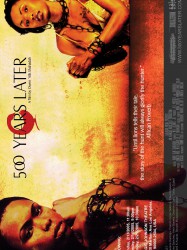
500 Years Later (2005)
, 1h48Réalisé par Owen 'Alik Shahadah
Genres Documentaire
Thèmes Afrique post-coloniale, Esclavagisme, Le racisme, Documentaire sur la discrimination, Documentaire sur le droit, Documentaire historique, Documentaire sur une personnalité, Documentaire sur la politique, Politique
Acteurs Bill Cosby, M. K. Asante, Nelson George
Note68%





The film visits five continents, and over twenty countries while charting the legacy of slavery and identifies a direct, or indirect link to crime, drugs, HIV/AIDS, poor education, inferiority complex, low expectations, poverty, corruption, poor health, and underdevelopment to African people globally.
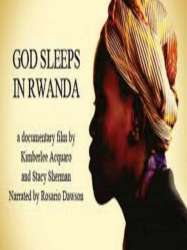
God Sleeps in Rwanda (2005)
, 28minutesGenres Documentaire
Thèmes Afrique post-coloniale, Le racisme, Documentaire sur la discrimination, Documentaire sur le droit, Documentaire sur la guerre, Documentaire historique, Documentaire sur une personnalité, Documentaire sur la politique, Politique
Acteurs Rosario Dawson
Note71%






Flower in the Gun Barrel (2008)
Origine Etats-Unis
Genres Documentaire
Thèmes Afrique post-coloniale, Le racisme, Documentaire sur la discrimination, Documentaire sur le droit, Documentaire sur la guerre, Documentaire historique, Documentaire sur une personnalité, Documentaire sur la politique, Politique
Note80%





To a large extent, the film consists of interviews with genocide survivors, many of whom were children in 1994. In all, over thirty survivors, perpetrators, and experts were interviewed for the film. In these interviews, the survivors discuss what it means to be a Rwandan and to live next door to people who killed their families. The survivors describe how they deal with their country's request that they forgive one another and move on, so that Rwanda can rebuild and unify itself. Perpetrators' views illuminate the madness that seized the culture in 1994; exploring the experience of apologizing to victims, and examining what it is like to be looked at as a murderer in Rwandan society.

The Cats of Mirikitani (2006)
, 1h14Genres Documentaire
Thèmes Les attentats du 11 septembre 2001, La prison, Le racisme, Religion, Le terrorisme, Transport, Aviation, Documentaire sur l'art, Documentaire sur la discrimination, Documentaire sur le droit, Documentaire sur la guerre, Documentaire historique, Documentaire sur une personnalité, Documentaire sur la politique, Documentaire sur la religion, Documentaire sur les technologies, Documentaire sur le terrorisme, Politique, Religion musulmane, Documentaire sur la Seconde Guerre mondiale, Film catastrophe, Film de catastrophe aérienne, Détournement d'avion
Note81%





In 2001 Japanese American painter, Jimmy Mirikitani (born Tsutomu Mirikitani), and over 80 years old, was living on the streets of lower Manhattan. Filmmaker, Linda Hattendorf, took an interest and began
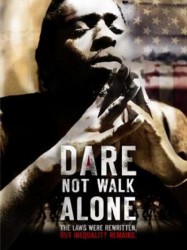
Dare not Walk Alone (2006)
, 1h20Genres Documentaire
Thèmes Le racisme, Documentaire sur la discrimination, Documentaire sur le droit, Documentaire historique, Documentaire sur une personnalité, Documentaire sur la politique, Politique
Note84%






As We Forgive (2008)
Genres Documentaire
Thèmes Afrique post-coloniale, Le racisme, Documentaire sur la discrimination, Documentaire sur le droit, Documentaire sur la guerre, Documentaire historique, Documentaire sur une personnalité, Documentaire sur la politique, Politique
The film tells the story of two Rwandan women who come face-to-face with the neighbors who slaughtered their families during the 1994 genocide, and their personal journeys toward forgiveness. Featuring in-depth interviews with both survivors and murderers, As We Forgive provides an intimate, first-hand view of the encounters between genocide perpetrators and their victims’ families.
 , 1h20
, 1h20Réalisé par Roger Spottiswoode
Origine Etats-Unis
Genres Documentaire
Thèmes Afrique post-coloniale, Le racisme, Religion, Le terrorisme, Documentaire sur la discrimination, Documentaire sur le droit, Documentaire sur la guerre, Documentaire historique, Documentaire sur une personnalité, Documentaire sur la politique, Documentaire sur la religion, Politique, Religion juive
Note71%






Colored Frames (2007)
, 56minutesOrigine Etats-Unis
Genres Documentaire
Thèmes Le racisme, Documentaire sur l'art, Documentaire sur la discrimination, Documentaire sur le droit, Documentaire historique, Documentaire sur une personnalité, Documentaire sur la politique, Politique
Note70%





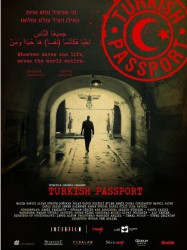
Turkish Passport (2011)
, 1h31Genres Drame, Documentaire, Historique
Thèmes Le racisme, Religion, Documentaire sur la discrimination, Documentaire sur le droit, Documentaire sur la guerre, Documentaire historique, Documentaire sur une personnalité, Documentaire sur la politique, Documentaire sur la religion, Politique, Religion juive, Documentaire sur la Seconde Guerre mondiale
Note79%





Turkish Passport tells the story of diplomats posted to Turkish embassies and consulates in several European countries, who saved numerous Jews during the Second World War. Whether they pulled them out of Nazi concentration camps or took them off the trains that were taking them to the camps, the diplomats, in the end, ensured that the Jews who were Turkish citizens could return to Turkey and thus be saved. Based on the testimonies of witnesses who traveled to Istanbul to find safety, Turkish Passport also uses written historical documents and archive footage to tell this story of rescue and bring to light the events of the time.
[...]Voir plus...
 , 1h
, 1hRéalisé par Andrew Goldberg
Origine Etats-Unis
Genres Documentaire
Thèmes Afrique post-coloniale, Le racisme, Religion, Documentaire sur la discrimination, Documentaire sur le droit, Documentaire sur la guerre, Documentaire historique, Documentaire sur une personnalité, Documentaire sur la politique, Documentaire sur la religion, Politique, Religion juive
Note67%





 Connexion
Connexion
